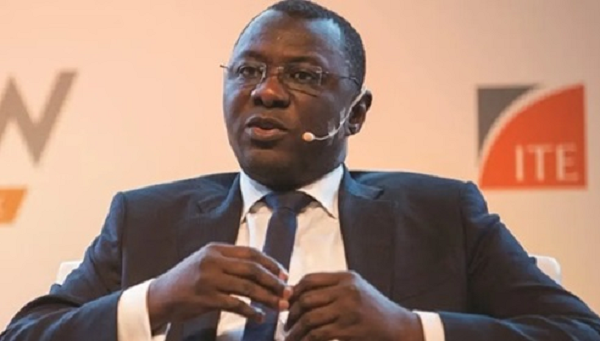Politics
Govt receives $5.4bn debt restructuring plan

The government has received a draft memorandum of understanding from the Official Bilateral Creditor Committee co-chaired by France and China, representing the final step in the country’s negotiations with its bilateral creditors to restructure $5.4 billion of its bilateral debts.
This is expected to pave the way for the release of the third tranche of $360 million from the International Monetary Fund (IMF) as part of the fund’s extended facility programme
with the government of Ghana.
Already, the country has received $1.2 billion from the fund.
This was disclosed by the Minister of Finance, Dr Mohammed Amin Adam, at a news conference in Accra yesterday.
Dr Amin Adam said the government, with support from its financial and legal advisors, would review the MoU to finalise and sign the agreement with the creditor committee as soon as possible.
The signing of the MoU will pave the way for the Executive Board of the International Monetary Fund (IMF) to approve the second review of the country’s three-year programme with the fund.
The approval of the review will then unlock the third tranche of $360 million from the IMF, bringing the total disbursement under the programme to $1.56 billion.
Background
As part of the country’s programme with the IMF, the government was tasked with restructuring both its domestic and external debts.
In December 2022, Ghana requested for debt treatment under the G20 Common Framework.
Financing assurances were given by the Official Creditor Committee (OCC) established as part of the Common Framework.
On January 12, 2024, prior to the IMF Executive Board’s approval of the first review of the IMF-supported Post COVID-19 Programme for Economic Growth (PC-PEG), Ghana received financing assurance upon reaching an agreement in principle with the OCC.
What is now left is for the government to formalise this agreement through an MoU, and the receipt of the MoU from the OCC represents a significant step towards this.
Domestic debt restructuring
On the domestic front, Dr Amin Adam said since the debt restructuring programme began, the government’s financing sources had been limited to Treasury Bills (T-Bills).
He said market participants had, however, raised concerns about the relatively high rates of T-Bills compared to the pre-Domestic Debt Exchange Programme (DDEP) interest rates.
“Our assurances to the domestic market are in three fold: we have successfully paid two bullet coupons, each of about GH¢6 billion for the DDEP, and we assure the market, come August 2024, the third coupon will be duly honoured.
“We will continue to honour our obligations, and on time,” he said.
The minister said signs of economic stabilisation were emerging, adding that the government had made significant progress in stabilising the macroeconomy on the back of increasing growth, improved primary and fiscal balance, declining interest rates and inflation, albeit some instability in the exchange rate arising mainly from seasonal factors and strengthening of the US dollar on the international currency market.
“We are, therefore, confident of locking in these positive gains in the near term with a further reduction in these key economic aggregates to improve domestic market sentiments, post-DDEP,” he said.
Eurobond negotiations
On the Eurobond negotiations, Dr Amin Adam said the government had made significant progress with the Eurobond investors to restructure its $13 billion debt.
“It is important to note that we are operating under a complex set of constraints as part of the IMF’s Debt Sustainability Thresholds, and this formed the context and basis of discussions for a mutual understanding of the financial parameters with our Eurobond holders.
On the Eurobond negotiations, Dr Amin Adam said the government had made significant progress with the Eurobond investors to restructure its $13 billion debt.
“It is important to note that we are operating under a complex set of constraints as part of the IMF’s Debt Sustainability Thresholds, and this formed the context and basis of discussions for a mutual understanding of the financial parameters with our Eurobond holders.
“We have held several rounds of negotiations on proposals and counterproposals on the Eurobond Treatment,” he stated.
He said this had led to a series of restrictive discussions for about three weeks just before the IMF Spring meetings, and that it ended successfully in April 2024, with very narrow differences.
The Finance Minister said considerable progress was being made towards a constructive solution that would be acceptable to all parties.
“It is for this reason that we are confident and more optimistic that we can continue to work together on solutions that would deliver an acceptable compromise for all stakeholders.
“We are determined to reach an agreement with our bondholders and our commercial creditors promptly on terms that are consistent with the IMF programme parameters, and we will put all our efforts towards attaining that objective in the coming weeks,” he said.
Source: Graphic Online




